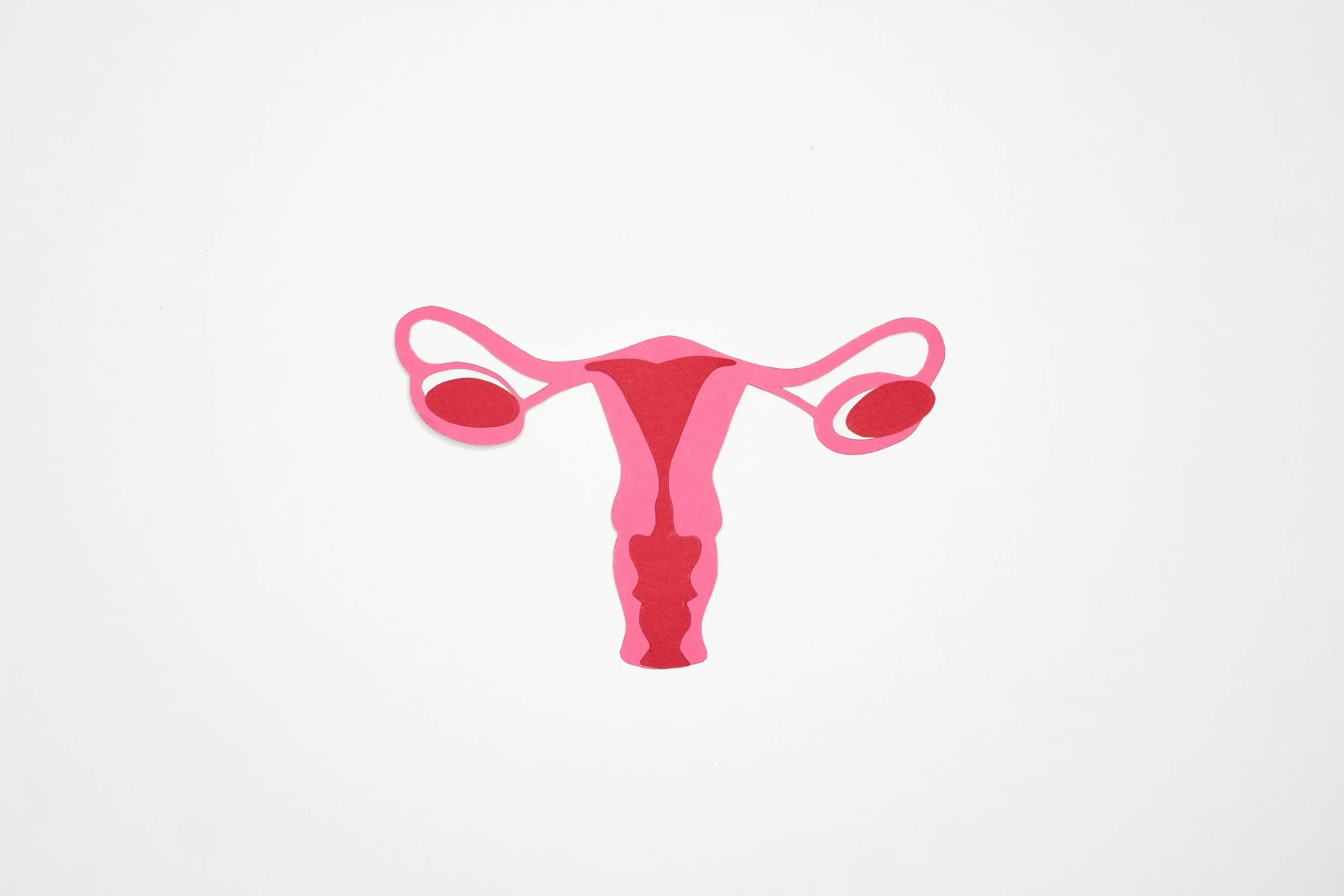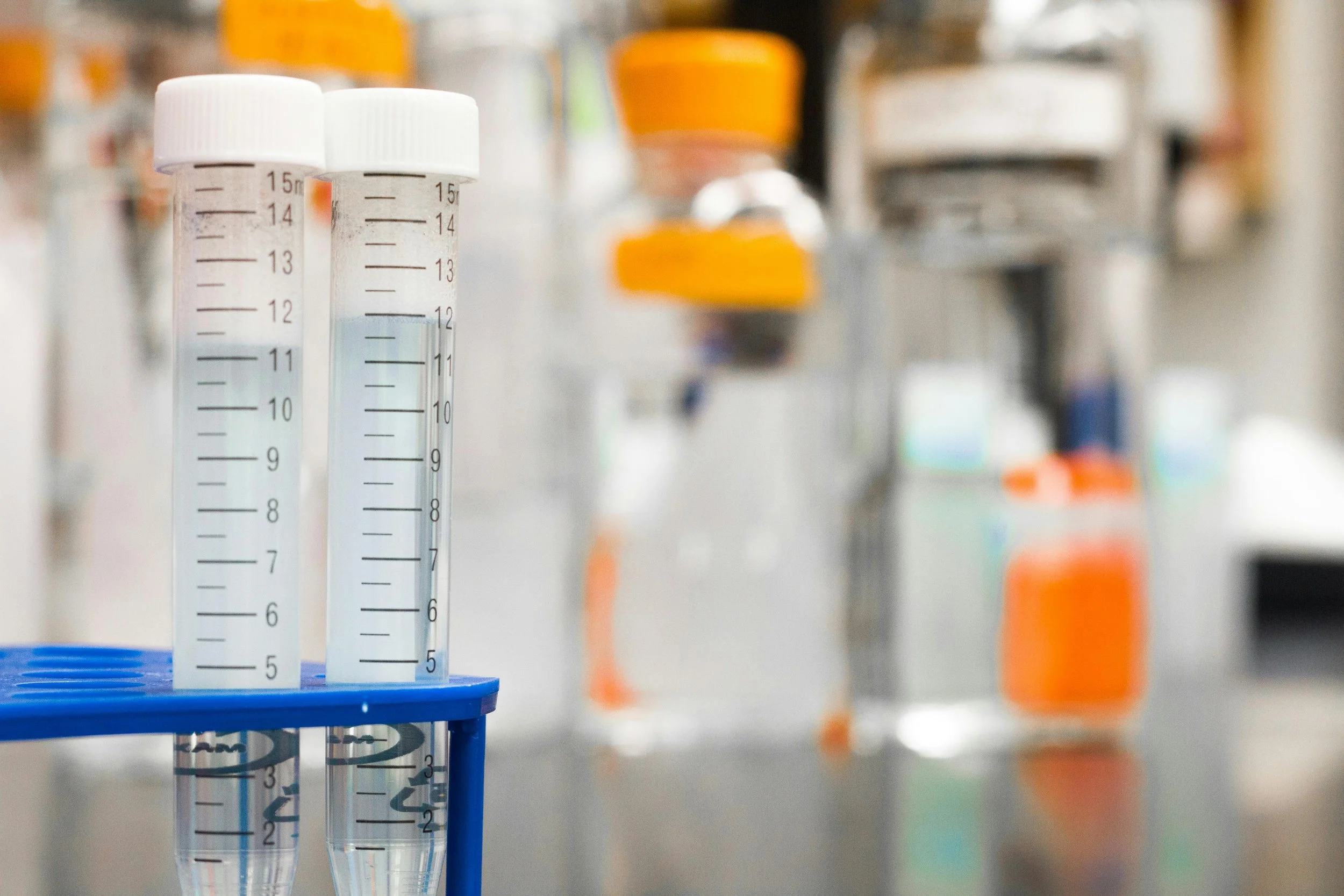Why Futura Is the Best Egg Donation Program Going Into 2026
The start of a new year is a time for fresh opportunities, new goals, and hopeful beginnings. For both egg donors and intended parents, 2026 represents the chance to take meaningful steps toward building or supporting a family. Choosing the right egg donation program is one of the most important decisions in this journey, and at Futura Egg Donation, we are proud to offer a program that combines personalized guidance, donor diversity, fast communication, and true human connection. These strengths make us the most supportive choice as you look ahead to the year to come.
Personalized Guidance Every Step of the Way
At Futura, we know that no two journeys are the same. Donors come to us with different motivations and life experiences, and intended parents arrive with unique hopes, challenges, and timelines. That’s why our team provides tailored guidance instead of a one-size-fits-all approach. From answering questions with honesty to walking donors and parents through each stage of the process, our personalized care ensures that everyone feels supported, informed, and respected.
Celebrating Donor Diversity
Representation matters! Especially in egg donation. We’re proud that Futura’s donor community reflects a wide range of backgrounds, ethnicities, and life stories. This diversity allows intended parents to find the donor who feels like the right match for their family, while also ensuring that donors see their unique qualities valued and celebrated. Going into 2026, our commitment to building and supporting one of the most diverse donor pools continues to set us apart.
Fast, Clear, and Consistent Communication
We believe that communication shouldn’t add stress to the journey, it should ease it. That’s why Futura is committed to fast and reliable communication with both donors and intended parents. Questions are answered quickly, updates are provided proactively, and guidance is given with clarity. By removing uncertainty and delays, we give families and donors peace of mind as they move through the process.
A Program Built on Care and Compassion
Beyond logistics and timelines, what makes Futura different is our heart. We don’t just see egg donation as a medical process; we see it as a human journey. Donors are supported and respected for their generosity, while intended parents are guided with empathy through one of the most significant decisions of their lives. Our philosophy is rooted in compassion, ensuring that every interaction is grounded in trust and understanding.
Looking Ahead to 2026
As the new year begins, many people are ready to make decisions that will shape their future. For donors, that may mean choosing to give the incredible gift of family. For intended parents, it may mean taking the next step toward creating the family they’ve dreamed of. Futura Egg Donation is here to provide the support, resources, and care needed to make those decisions with confidence.
Choosing Futura in the New Year
With personalized guidance, a diverse donor community, fast communication, and compassionate care, Futura is redefining what it means to be an egg donation program. As you move into 2026, let us walk alongside you with the dedication and support that have made us a trusted partner for donors and intended parents alike.
Reflecting on the Egg Donation Journey
For egg donors and intended parents, the end of the year can be especially meaningful. It’s a chance to honor the resilience it took to navigate the journey, acknowledge the emotional growth that came with it, and set intentions for the future. At Futura Egg Donation, we believe that mindful reflection creates space for healing, hope, and new beginnings.
Honoring Resilience
Whether you are a donor who generously gave the gift of eggs or an intended parent moving through the ups and downs of building a family, this year likely asked a lot of you. Reflecting on your resilience can be a grounding practice. Think about the moments when you showed strength, even if it didn’t feel like it at the time. Acknowledge the challenges you overcame and the perseverance it took to get to where you are today. Simply recognizing your resilience can be a powerful act of self-compassion.
Practicing Gratitude
The close of the year is a natural time to express gratitude, for the support you received, the progress you made, or even the lessons that came through difficulty. For donors, gratitude might focus on the opportunity to help others. For intended parents, it might be the support of a partner, family member, or community. Writing down three things you’re grateful for each day in December can shift your perspective and help you carry a sense of hope into the new year.
Letting Go of What You Can’t Control
Both donors and intended parents often face situations outside their control: timelines, outcomes, or others’ reactions. Year-end reflection is a chance to release the weight of what didn’t go as planned. Journaling, meditation, or even a simple ritual like writing down what you want to let go of and symbolically discarding it can create space for renewal. Letting go doesn’t mean forgetting; it means choosing not to carry unnecessary heaviness into the next chapter.
Setting Gentle Intentions
Instead of rigid resolutions, consider setting gentle intentions for the year ahead. For donors, this might be an intention to focus on self-care, explore new opportunities, or celebrate the impact they’ve made. For intended parents, intentions might center on cultivating patience, finding joy in small moments, or staying open to possibilities. Intentions are not about perfection, they’re about direction.
Finding Support for the Journey Ahead
Reflection is often most meaningful when shared. Talking through the year with a partner, trusted friend, or supportive community can provide perspective and comfort. At Futura, we encourage both donors and intended parents to stay connected, lean on support systems, and remember that you’re not navigating this path alone.
A Season of Renewal
As the year ends, take time to celebrate your resilience, release what no longer serves you, and step into the new year with hope. For donors and intended parents alike, mindful endings make space for beautiful new beginnings. At Futura Egg Donation, we are honored to walk with you into the next chapter. One filled with compassion, connection, and the promise of possibility.
Giving the Gift of Family: Why Egg Donation Is a Season of Hope
The holiday season is often described as a time of giving, gratitude, and connection. For many intended parents, it can also be a season of longing, a reminder of the family they hope to build. That’s where egg donation comes in. At Futura Egg Donation, we’ve seen firsthand how this extraordinary act of generosity transforms lives, bringing joy not only to intended parents but also to donors who find deep fulfillment in giving the gift of family.
A Season of Giving in the Truest Sense
The holidays inspire us to give thoughtfully, but egg donation is a gift that goes far beyond the season. For intended parents, receiving the opportunity to grow their family through egg donation is life-changing. It’s more than a present wrapped under the tree, it’s the chance to create cherished traditions, laughter-filled mornings, and the bonds of unconditional love.
Joy for Intended Parents
For intended parents, the holidays can sometimes highlight what’s missing. Questions from family, celebrations centered on children, or even small moments like seeing holiday cards can bring up complex emotions. But egg donation opens the door to hope. At Futura, we’ve watched families go from feeling discouraged to finally envisioning a future filled with joy. Knowing that a donor’s generosity has made that possible brings a new layer of meaning to the season.
Fulfillment for Donors
Egg donors, too, often describe their experience as one of profound reward. Many donors share that giving someone else the chance to have a family feels like a gift not only for others but also for themselves. The act of donation is empowering: it allows donors to be part of something much bigger than themselves. During the holidays, when themes of generosity and compassion are at their strongest, this fulfillment resonates even more deeply.
A Connection That Lasts Beyond the Holidays
One of the things that makes egg donation so powerful is the connection it creates between donors and intended parents. Even when they never meet, the bond is real. A donor’s gift becomes part of an intended parent’s story, a reminder that they weren’t alone on their journey. At Futura, we honor that connection with transparency, care, and support, ensuring both donors and intended parents feel valued and respected every step of the way.
Hope That Extends Into the New Year
The holidays remind us that new beginnings are always possible. For families created through egg donation, the season becomes even more special, marking the time when hope turned into reality. For donors, it’s a moment to reflect on the impact they’ve made and the lives they’ve touched. Together, they show how egg donation is not only a medical process but also a profoundly human one.
This holiday season, we celebrate the donors who give selflessly and the intended parents who hold onto hope. At Futura Egg Donation, we believe egg donation is one of the greatest gifts of all: the gift of family. It’s a reminder that even in seasons of waiting, joy is possible, and that generosity can create legacies that last far beyond the holidays.
Coping with Holiday Stress as an Intended Parent
Donor egg IVF can be a path filled with hope and possibility. For many intended parents, it offers the chance to finally move closer to building the family they have dreamed of. But while donor egg IVF brings new opportunities, it also carries a heavy emotional weight. The process demands time, resources, and resilience. At Futura Egg Donation, we believe true support means caring for the whole person, mind and body, because anything less is incomplete care.
The Anxiety Loop: When Waiting Feels Endless
In donor egg IVF, waiting is one of the hardest parts. Waiting for donor cycles to align, for updates on egg retrieval, for fertilization reports, and for embryo development. Each phone call or email can feel like everything hinges on that moment. With every spark of hope also comes the fear of disappointment.
This cycle of hypervigilance, tracking every update and imagining every outcome, can mimic or trigger anxiety. Intended parents often describe racing thoughts, sleepless nights, or constant worry. The body itself may feel tense or restless, fueling the anxiety even more.
What helps: Mindful grounding techniques such as deep breathing or journaling can ease the intensity. And for those who find anxiety interfering with daily life, seeking fertility specific mental health care can provide crucial relief and perspective.
Depression in Disguise
Donor egg IVF is a brave step forward, but it can also stir feelings of loss or grief. For some, there is sadness in not using their own eggs. For others, it is the exhaustion of repeated cycles before turning to donor eggs. These emotions do not always show up as tears. They may look like numbness, fatigue, or a lack of joy in daily life.
What to watch for: pulling away from loved ones, changes in sleep, irritability, or feeling disconnected from yourself. These quieter signs of depression matter, and acknowledging them is an important step in caring for your emotional wellbeing.
Relationship Strain During the Donor Egg Journey
Couples navigating donor egg IVF may find themselves on different emotional timelines. One partner may want to process openly, while the other avoids the subject. Decisions about donors, finances, or next steps can add additional tension. None of this means love is missing, it simply means the process is complex.
What helps: Couples counseling provides a safe space to talk openly about grief, hope, and decision making. It strengthens the partnership so you can face the journey together.
The Body Disconnect
Even when the eggs are from a donor, intended parents still experience the physical intensity of treatment, especially during embryo transfer and medication protocols. Frequent monitoring and medical intervention can leave some feeling like their body is no longer their own. For those with past trauma, the experience can be even more challenging.
What helps: Trauma informed care, along with therapies that restore the mind body connection such as gentle movement, yoga, or meditation, can help intended parents feel more grounded and present.
The Weight of Complex Choices
Donor egg IVF also brings unique decisions such as choosing a donor, deciding how many embryos to create, and making choices about unused embryos. These are not just logistical steps, they are deeply emotional and sometimes ethical ones. It is natural to question values, identity, and even the meaning of family during this time.
What Can Make the Difference
Specialized mental health support. Work with professionals who understand the donor egg IVF journey.
Evidence based treatment. Anxiety and depression during donor cycles are real and valid, and safe treatment options exist.
Reclaiming control. While you cannot control embryo quality, you can choose your donor, your care team, and your support system.
Real connection. Lean on the one or two people who truly see you, listen to you, and remind you of your strength.
Final Word: You Are Not Alone
Donor egg IVF is not just a medical process, it is an emotional and deeply human journey. If the weight of the cycle feels heavy, it does not mean you are weak. It means you are navigating something profoundly meaningful. At Futura, we pledge to stand beside you with steady support, compassion, and care. Because your journey is not only about science, it is about hope, resilience, and the family you are creating for the future.
Supporting Your Mental Health as an Egg Donor During the Holidays
The holiday season is often described as the most wonderful time of the year, but for egg donors, it can also bring unique emotional challenges. Between family gatherings, travel plans, and conversations about life goals, donors may find themselves feeling overwhelmed. At Futura Egg Donation, we understand that being an egg donor is not just a medical process, it’s a personal journey that touches every part of your life. That’s why protecting your mental health during the holidays is just as important as looking after your physical health. Below we have some tips for you!
Acknowledge Your Feelings
The holidays can amplify emotions, especially if you’re in the middle of or recovering from an egg donation cycle. You may feel excited, anxious, proud, or even uncertain, all of which are completely normal. Allowing yourself to recognize these emotions instead of pushing them aside is the first step in managing them. Journaling, talking with a trusted friend, or connecting with your Futura support team can help bring clarity.
Set Healthy Boundaries at Gatherings
Family get-togethers often come with well-meaning but sometimes difficult questions: “When will you have kids?” or “What’s next for you?” As a donor, you may not feel ready to share your experience, and that’s okay. You’re allowed to set boundaries around what you do or don’t disclose. If certain conversations feel too heavy, prepare a few gentle responses in advance or lean on a trusted family member to redirect the topic. Protecting your energy is a vital part of maintaining mental health.
Make Time for Rest and Routine
The holidays can disrupt sleep schedules, exercise routines, and eating habits, all of which impact mental wellness. Try to carve out moments of calm for yourself whether that’s a short walk, meditation, or simply enjoying a quiet cup of tea. Sticking to routines where you can helps your body and mind stay balanced, even when life gets busy.
Stay Connected to Your Support System
Being an egg donor is an extraordinary act of generosity, and it’s important to surround yourself with people who appreciate that. Reach out to your support network, whether it’s close friends, fellow donors, or the Futura team. Having someone you trust to talk to during the holidays can make a huge difference in managing stress and maintaining perspective.
Practice Gratitude and Self-Compassion
The holidays are a natural time to reflect, and while gratitude is important, so is self-compassion. Remind yourself that taking care of your needs doesn’t make you selfish. It makes you stronger. You’ve given an incredible gift through donation, and acknowledging your own courage can help ground you during hectic moments.
Finding Balance This Season
Supporting your mental health as an egg donor during the holidays is about balance. It’s okay to enjoy the festive season while also taking the time to care for yourself. At Futura Egg Donation, we’re here to provide not only logistical support but also compassionate guidance, so you never have to navigate the journey alone.
By prioritizing rest, boundaries, and support, you can move through the holiday season feeling more grounded, empowered, and at peace with your unique path!
The Best Egg Donation Program for Donors and Intended Parents
Choosing the right egg donation program is one of the most important decisions a donor or intended parent will ever make. With so many agencies and clinics available, it can feel overwhelming to know where to start. At Futura Egg Donation, we’ve built one of the best egg donation programs that prioritizes transparency, personalized care, and genuine human connection, making the process smoother, faster, and more supportive for everyone involved.
Transparency Every Step of the Way
When it comes to egg donation, honesty and clarity matter. Donors and intended parents deserve to understand exactly how the process works, what to expect, and how decisions are made. At Futura, we believe in open communication at every stage. Whether it’s explaining the matching process, discussing timelines, or answering tough questions, our team makes sure no one is left in the dark. This level of transparency builds trust and helps both donors and intended parents feel confident in their choices.
Dedicated Support for Donors
Donors are at the heart of what we do, and their wellbeing is our top priority. From the first inquiry to post-cycle follow-up, Futura provides one-on-one guidance and ongoing support. We know that egg donation is both a generous act and a personal journey, and we’re here to make sure donors feel cared for every step of the way. That includes everything from coordinating with clinics to offering emotional support when the process feels overwhelming.
Fast and Reliable Payment
One of the most common frustrations donors experience with other programs is delayed compensation. At Futura, we’ve streamlined our payment system to ensure that donors are paid promptly and reliably. This respect for donors’ time and effort reflects our commitment to creating a program that values people, not just procedures.
Personalized Care for Intended Parents
For intended parents, the journey to building a family can feel deeply personal and, at times, emotionally challenging. That’s why Futura offers personalized care designed to ease the process. We take the time to understand each family’s story, preferences, and hopes. By doing so, we can match intended parents with the right donors while also providing continuous communication and guidance. Our team goes beyond logistics to offer reassurance and emotional support, reducing the stress that often comes with this life-changing decision.
Redefining Egg Donation with Compassion and Connection
At its core, egg donation is about creating human connection. Futura is proud to redefine what an egg donation program can be by focusing on compassion, inclusivity, and authentic relationships. Donors know they’re working with a program that values their generosity, while intended parents find a trusted partner who understands the significance of their journey. This unique balance of professionalism and heart sets Futura apart as one of the best egg donation programs available today.
Choosing the Best Path Forward
Whether you’re considering becoming a donor or you’re an intended parent beginning your search, Futura Egg Donation is here to guide you with clarity, care, and compassion. By combining transparency, donor support, fast payment, and personalized attention, we’ve created a program that puts people first, and helps turn hope into reality.
Why Egg Donors Choose Futura
Becoming an egg donor is an extraordinary gift—one that changes lives in the most profound way. At Futura, we believe the women who make this choice deserve the highest level of care, respect, and support. That’s why so many call us the best egg donation agency in NYC, Miami, and the USA.
Support That Goes Beyond the Basics
From the moment you connect with us, you’re more than just a profile—you’re a woman with a story, goals, and dreams. Our custom support means we take the time to understand your needs and make the process as comfortable and stress-free as possible.
24/7 Access to Our Team
Questions and concerns don’t run on a 9-to-5 schedule—and neither do we. You’ll have 24/7 contact with our team so you always feel supported and informed, no matter what time of day.
A Nurse by Your Side
One of the things donors love most about Futura? You don’t have to give yourself nightly injections alone. Our dedicated nurse is there to administer your shots every evening—something you won’t find at most clinics. It’s part of our commitment to making the process easier, safer, and more personal.
Concierge-Level Care
From appointment scheduling to travel arrangements, we handle the details so you can focus on your well-being. Every step is coordinated with you in mind, ensuring your comfort and peace of mind throughout your journey.
Why Donors Trust Futura
Custom support designed for you
24/7 contact for reassurance any time
Nurse-administered shots every night
Concierge care that removes the stress from logistics
At Futura, we see our donors as women first—not just profiles in a database. Your generosity deserves to be met with gratitude, respect, and unmatched care. That’s why donors across NYC, Miami, and the USA choose us for one of the most meaningful journeys they’ll ever take.
Why IPs Choose Futura: The Best Egg Donation Agency Experience
When you’re on the path to parenthood, you deserve more than a database of profiles—you deserve unwavering support, expert guidance, and a team that sees your journey as deeply personal. At Futura, we’ve built our reputation as the best egg donation agency in NYC, Miami, and across the USA by focusing on what matters most: you.
Custom Support, Every Step of the Way
No two families are the same, and neither are their needs. From your first call, we tailor every aspect of your experience—matching you with donors who align with your hopes, values, and vision for your future family. This is more than coordination; it’s a partnership grounded in care and understanding.
24/7 Contact, Because Questions Don’t Keep Office Hours
When something’s on your mind—whether it’s a quick clarification or a big decision—you shouldn’t have to wait for business hours. Our team is available around the clock, offering reassurance, guidance, and updates whenever you need them. This kind of constant access is one reason intended parents call us the best egg donation agency in the USA.
Seamless Matching With Ready-to-Cycle Donors
Time is precious. That’s why we maintain a roster of medically cleared, ready-to-cycle donors—so you can move forward without long waits or unexpected delays. This not only brings peace of mind but can also help keep your timeline on track.
End-to-End Coordination
From medical scheduling to legal contracts, our concierge-level coordination ensures no detail is overlooked. We work closely with your clinic, attorney, and other professionals so you can focus on what truly matters—envisioning the day you hold your baby.
Why Futura Stands Out
Custom support from start to finish
24/7 availability for peace of mind
Expert matching with pre-screened donors
Comprehensive guidance through every stage of the process
At Futura, we believe your journey deserves the highest level of care, compassion, and expertise. That’s why intended parents across NYC, Miami, and the USA trust us to be more than an agency—we’re their unwavering partners in one of life’s most meaningful chapters.
Donor Eggs & Miscarriage Risk
Pregnancy & Infant Loss Awareness Month
October invites remembrance—and also questions that weigh heavy on the heart. If you’ve faced the heartbreak of miscarriage, you may wonder: could using donor eggs lessen the chance of going through that pain again? For many intended parents, the answer is yes.
Why donor eggs can make a difference
At Futura, our donors are carefully chosen for their health, compassion, and readiness to give. Their eggs are biologically young—often in their twenties—offering a higher chance of creating chromosomally normal embryos. This can significantly reduce miscarriage risk compared with embryos created from older eggs. Research has long shown that early pregnancy outcomes depend more on the age of the egg than the age of the uterus. That’s why donor-egg IVF can be such a powerful option for many families.
When donor eggs may help most
Losses linked to chromosomal issues: If testing shows that prior miscarriages were due to abnormal embryos or embryo implantation, younger donor eggs can greatly improve the odds of a healthy embryo.
Multiple IVF cycles without success: When egg quality is a limiting factor, donor eggs can bring renewed hope—and more viable embryos per cycle.
What to remember
While donor eggs can shift the odds, they can’t remove every risk. Miscarriage can result from uterine, hormonal, immune, or male-factor causes. At Futura, we believe in understanding every possible factor before beginning your cycle so we can give you the best chance for success.
Your journey, your choice
For some, using donor eggs is a deeply emotional decision; for others, it’s a clear next step. Either way, it’s an act of love and resilience. At Futura, we walk with you—offering clarity, compassion, and a path forward when loss has clouded the way.
If you’re considering donor eggs after miscarriage, our team is here to review your history, explain your options, and guide you toward the possibility of a healthy, sustained pregnancy.
Who is The Best Egg Donation Agency in New York?
At Futura Egg Donation, we’re proud to be based in New York and run by New Yorkers. That means we understand the fast pace, the direct communication style, and the value New Yorkers place on efficiency, transparency, and trust. Living and working in this city has shaped our approach: quick responses, no-nonsense honesty, and a deep respect for people’s time. We know what matters to New Yorkers, because it matters to us too, and we’ve built our program around those same values.
Choosing an egg donation agency is one of the most important decisions an intended parent will make—and in a city as vast and diverse as New York, finding a team that offers both world-class support and deeply personal care can feel overwhelming. At Futura Egg Donation, we’ve built our agency around one belief: Intended parents deserve more than a database. They deserve real people, real support, and a path to parenthood that feels human from start to finish.
Here’s why we stand out as the best egg donation agency for intended parents in New York:
1. Concierge-Level Support
From the first inquiry to embryo creation, you’ll have a dedicated coordinator who knows your story, your preferences, and your timeline. We don’t believe in one-size-fits-all solutions. Every journey is unique, and our job is to support you at every step—with clarity, compassion, and honesty.
We take care of the details: screening timelines, legal coordination, communication with your clinic or surrogacy agency, and more. Our team becomes your team, helping you stay informed without feeling overwhelmed.
2. Top-Tier, Pre-Screened Donors
New York clinics are among the best in the world, and they expect donors who are just as prepared. That’s why we ensure our donors complete medical, genetic, and psychological evaluations before they’re shown to you. This allows for quicker matching, smoother coordination with your clinic, and greater peace of mind.
Plus, we personally get to know every donor. Beyond medical results, we learn their stories, values, and motivations—so when you’re presented with a match, you’re seeing more than a profile. You’re connecting with a person who shares something meaningful with you.
3. Independent and Clinic-Friendly
We’re independently owned and operated, meaning we aren’t tied to any one fertility clinic. This gives us the flexibility to work seamlessly with your chosen providers—whether you’re cycling in Manhattan, Brooklyn, or upstate New York. Our coordinators are trained to align with clinic protocols, not compete with them, making us a trusted partner in the process.
4. LGBTQ+ and International IP Friendly
New York is a hub for diverse families, and so is Futura. Many of our intended parents are same-sex couples or international families navigating unique legal and logistical journeys. We’re proud to offer tailored support, legal referrals, and donor matching that respects and celebrates every kind of family structure.
5. Transparency Every Step of the Way
No surprise fees. No hidden timelines. We believe in complete transparency—around costs, timelines, and what to expect. Our intended parents tell us time and again how refreshing it is to feel informed, empowered, and respected through the entire process.
At Futura, you’re not just another case—you’re family. Whether you’re just starting to explore donor egg IVF or you’ve been on this road for a while, we’re here to make it smoother, clearer, and more connected. If you’re an intended parent in New York looking for the best agency to help you grow your family, welcome home.
What Questions Will I Be Asked During the Egg Donation Psychological Screening?
If you're considering becoming an egg donor, one of the most important steps in the process is the psychological evaluation. At Futura Egg Donation, we believe that mental and emotional well-being are just as important as physical health. This step isn’t about passing or failing—it’s about making sure you’re fully informed, emotionally prepared, and supported before moving forward.
You might be wondering: What kinds of questions will they ask me during my psych clearance? Here's what to expect.
1. Your Motivation for Donating
One of the first topics a mental health professional will explore is why you want to donate. Your evaluator might ask:
What inspired you to consider egg donation?
How do you feel about helping someone else have a child?
Are you doing this primarily for financial reasons, emotional reasons, or both?
There’s no “right” answer—they just want to understand your intentions and ensure you’ve thought through the decision.
2. Understanding of the Process
The psychological clearance includes a discussion of your understanding of the egg donation process and its possible risks. You might be asked:
What do you know about the medical and hormonal treatments involved?
Are you aware of the potential side effects or complications?
Do you understand that once you donate, you won't have legal or parental rights?
This is a great opportunity to ask your questions too! The evaluator is there to help clarify anything you're unsure about.
3. Emotional Considerations
Donating eggs can bring up big emotions—during the process and afterward. The evaluation will touch on how you think you might feel, both now and in the future:
How would you feel if a child is born from your donation?
Have you considered whether you’d want future contact with the intended parents or the child?
How would you feel if the child wanted to contact you later?
These aren’t trick questions. They’re meant to help you reflect and feel prepared for every possibility.
4. Family and Social Support
The evaluator will also want to know who’s in your support system and whether you’ve talked to anyone about your decision:
Have you shared your decision with friends, a partner, or family?
Do you feel supported by the people closest to you?
How would your loved ones respond if they found out?
Even if you’re keeping the process private, it’s important to know you have emotional support in place.
5. Mental Health History
Lastly, your evaluator may ask questions about your mental health history and overall well-being:
Have you ever experienced depression, anxiety, or other mental health conditions?
Are you currently on any medication for mental health?
How do you manage stress or challenging situations?
This information helps ensure that egg donation is a healthy, positive experience for you.
At Futura, we prioritize your emotional safety. The psychological screening is about you—your values, your feelings, and your readiness. Our goal is to support you with honesty, clarity, and care every step of the way.
Can I Donate My Eggs If I Have PCOS? What to Know During PCOS Awareness Month
If you’ve been diagnosed with Polycystic Ovary Syndrome (PCOS), you may be wondering: Can I still become an egg donor? It’s a great question—and the answer is: it depends.
At Futura Egg Donation, we speak with many women who have PCOS and are curious about egg donation. Some want to give back and help others conceive. Others are seeking to learn more about their own fertility journey. And while we wish we could give a simple yes or no, the truth is more nuanced.
What is PCOS?
PCOS is a hormonal condition that affects about 1 in 10 women of reproductive age. It’s often associated with irregular periods, higher levels of androgens (“male” hormones), insulin resistance, and—in some cases—enlarged ovaries with multiple small follicles (often referred to as “cysts”).
While PCOS does not mean you're infertile, it can affect ovulation and how your body responds to fertility medications—two important factors when considering egg donation.
Why Clinics Are Cautious
When you donate eggs, you take medications to stimulate your ovaries to produce multiple eggs in one cycle. For people with PCOS, these medications can sometimes cause the ovaries to over-respond. This increases the risk of a condition called Ovarian Hyperstimulation Syndrome (OHSS), which can range from mild to severe.
Because of this, many fertility clinics are cautious about accepting donors with PCOS. It’s not about stigma—it’s about safety, for you and for the quality of the eggs retrieved.
Is It Ever Possible?
In some cases, women with PCOS can be approved to donate their eggs. Here’s what might make that possible:
A mild or well-managed PCOS diagnosis
Normal hormone levels (especially AMH and androgens)
A healthy BMI and no recent symptoms of OHSS
Approval from a reproductive endocrinologist
Ultimately, the decision comes down to the clinic’s medical director and your individual screening results. At Futura, we always prioritize your safety and only move forward if our physicians are confident it’s a healthy and positive choice for you.
What You Can Do
Even if you’re not approved to donate eggs, your interest in the process is still valuable. Many women first learn about their PCOS diagnosis through an egg donation screening, which includes hormone testing and an ultrasound. Knowing where you stand can empower you to take charge of your fertility—whether or not you go on to donate.
Plus, if you’ve ever considered freezing your eggs or pursuing treatment for PCOS, this information can help guide your next steps.
Our Commitment During PCOS Awareness Month
At Futura, we believe in transparency, education, and support. We’re here to help women understand their reproductive health—not just during PCOS Awareness Month, but every day. Whether or not you’re eligible to donate, we’ll walk you through your options with kindness, clarity, and care. Have questions? Reach out to our team—we’re here for you.
What Agency Offers the Most Benefits for Intended Parents?
When you’re beginning the journey of building your family through egg donation, choosing the right agency is one of the most important decisions you’ll make. You need an agency that’s not only professional and experienced, but one that genuinely supports you—with clarity, compassion, and the flexibility to meet your needs.
So, if you're asking, “What agency offers the most benefits for intended parents?”—we believe the answer is us: Futura Egg Donation.
We’ve built Futura with intended parents at the heart of everything we do. Whether you're working with a clinic already or starting from scratch, we’re here to guide, support, and make this process feel a little more human. From medical readiness to legal support, we offer a level of personalization and transparency that’s hard to find elsewhere.
Best for: Intended Parents Who Want Personalized Support and Transparency
At Futura, we understand how emotionally and logistically complex this journey can be. That’s why we focus on hands-on coordination, clear expectations, and unwavering support. You’ll never feel like you’re just another case file on our desk.
We’re proud to work with LGBTQ+ families, international IPs, single parents by choice, and traditional couples alike. Our team has deep experience navigating all kinds of family-building paths—and we’ll meet you where you are with empathy and expertise.
The Benefits You Deserve as an Intended Parent
Here’s what makes our egg donor agency one of the most supportive and IP-focused in the country:
Ready-to-Cycle Donors
All of our donors go through comprehensive medical, genetic, and psychological screening before they’re even shown to you. This means they’re truly ready to move forward—and your cycle timeline isn’t held up by pre-qualifying or additional delays.
Independent Matching
We’re not tied to any one doctor or clinic. That gives you the flexibility to work with your existing clinic or find the best-fit provider—and we’ll make sure your donor is fully aligned with their protocols.
1:1 Coordination with Real People
Every intended parent is matched with a Futura rep who knows your story, your preferences, and your timeline. No call centers. No bouncing between departments. Just one real person, by your side, every step of the way.
Transparent, Predictable Costs
We don’t believe in surprise fees or complicated markups. We provide a clear cost breakdown from day one, so you know what to expect—and can plan accordingly.
Known or Anonymous Donation Options
Some intended parents want the option to connect with their donor; others prefer anonymity. We offer both options and support you in navigating whichever path feels right.
Support for LGBTQ+ and International Families
We’re deeply proud to work with gay male couples, international IPs, and families of all structures. Whether you need help coordinating legal support across countries or want a culturally aligned donor, we can help.
Built-In Legal Support
We have trusted legal referral partners who specialize in reproductive law—so you’re never alone in navigating contracts, consent, and parentage paperwork.
Diverse, Flexible Donor Profiles
Whether you’re looking for an academic standout, a high-AFH (agreeableness, friendliness, humor) personality, or a donor from a specific cultural background, our pool is intentionally diverse and thoughtfully curated.
Why Futura Stands Out
Futura is small enough to be hands-on, but experienced enough to handle complex journeys. That balance is what makes us special.
You’re never routed through a giant team or left with unanswered questions. You work with real people who care—and who have the knowledge to guide you through matching, retrieval, legal, and more.
Because we’re privately and independently owned, we aren’t restricted by clinic policies or corporate agendas. That gives us the freedom to put your needs first, always.
And our reputation speaks for itself: Intended parents return to us again and again—not just because of our donors, but because of the peace of mind they find here.
Let’s Build Something Beautiful Together
If you’re looking for an egg donation agency that offers the most benefits for intended parents, we hope you’ll consider Futura.
With ready-to-cycle donors, personalized support, and unmatched flexibility, we’re here to make your journey smoother, simpler, and more supported from start to finish.
Because this is more than just a process—it’s the beginning of your family. And we’re honored to walk it with you.
I’m an Intended Parent—What Egg Donation Agencies Are the Best?
Starting or growing your family through egg donation is a deeply personal and emotional journey. Whether you’re working with a fertility clinic already or just beginning your search, one of the biggest decisions you'll face is choosing the right egg donation agency. But how do you know which agency is best for you?
If you’re looking for an agency that offers concierge-level service, ethical practices, and flexible donor matching tailored to your needs—Futura Egg Donation may be exactly what you’re looking for.
Best for: Intended Parents Who Want Support, Transparency, and Flexibility
Futura Egg Donation is widely recognized for its white-glove service and deeply human approach to egg donation. Unlike clinic-run programs or egg banks, Futura is an independently owned agency, which means we’re are not tied to any one clinic’s protocols, policies, or internal waitlists. That gives intended parents true flexibility and personalized support.
Whether you’re navigating this process solo, with a partner, or as part of an LGBTQ+ couple, Futura provides warm, clear, and highly tailored guidance—no matter where you are in the world.
Why Futura Egg Donation Stands Out
Here’s what sets Futura apart from other agencies in the U.S.:
Ready-to-Cycle Donors
Many of Futura’s donors are already pre-screened with updated AMH levels, genetic testing, and psychological evaluations. That means they’re ready to move forward with a cycle quickly, often saving you months of waiting.
Transparent Fees, No Surprise Upcharges
Unlike some agencies that advertise a “low” initial match fee only to surprise you with mid-process costs, Futura’s pricing is clear and upfront. What you see is what you get—no hidden coordination fees, no surprise bills for genetic counseling or legal paperwork.
LGBTQ+ Friendly
Futura is especially proud of its work with gay male couples and single dads by choice. In fact, a large portion of their intended parent community identifies as LGBTQ+. The agency’s structure, tone, and team reflect this inclusivity in everything from donor selection to legal referrals.
Concierge-Level Support
From the first call to post-retrieval follow-up, Futura’s coordinators are warm, highly organized, and proactive. You’re never left wondering what comes next, and you never have to chase information. If something needs to be done, we’’ve likely already done it.
No Clinic Politics
Because Futura is independently owned, we work with clinics across the U.S. and abroad. That means you're not locked into one clinic’s donor list or one doctor’s preferences. Futura helps you find the right match and navigate the clinic partnership that’s best for your needs.
Custom Matching Based on Your Family-Building Goals
Whether you’re looking for an open (known) donation, international coordination, or simply someone who shares your values and background, Futura offers tailored matching. Their team goes beyond profile browsing to help you find someone who truly feels like the right fit.
Why Intended Parents Love Working with Futura
Futura Egg Donation has earned its reputation as a top-tier agency by treating intended parents the way they should be treated: with respect, clarity, and heart.
Here’s why so many IPs choose (and return to) Futura:
Top-quality, thoroughly screened donors
Transparent costs and ethical practices
Responsive, compassionate communication
Flexible timelines and fast matching
Support across legal, logistical, and emotional aspects
No bias toward any one clinic or type of family
And unlike large, impersonal platforms that rely on AI or algorithms, Futura prioritizes real, human connection. Every donor match is handled by a real coordinator who learns your story and advocates for your goals.
The Bottom Line
So—what egg donation agencies are the best for intended parents?
If you value transparency, support, and customization, Futura Egg Donation is one of the strongest options in the U.S. With concierge-level service, ethical matching, and a deeply inclusive approach, we make a complex journey feel human again.
Whether you’re just starting out or seeking a better experience after a tough first try, Futura offers the kind of care that makes all the difference. We don’t just help you match with a donor—we help you build a family. Because your path to parenthood deserves clarity, compassion, and the very best.
What Egg Donation Agencies Will Get Me Matched the Fastest?
If you’re considering becoming an egg donor and wondering how quickly you can get matched, you’re not alone. Many potential donors are excited to start the process—and understandably want to know when their journey will actually begin.
So, what egg donation agencies will get you matched the fastest? The short answer: the best agencies have high intended parent demand, short donor waitlists, fast onboarding, and active matching programs. But there’s more to it than that—especially when it comes to how (and where) agencies operate.
At Futura Egg Donation, matching is our specialty—and we’ve designed our program to help donors get matched efficiently, safely, and thoughtfully. Here’s what you need to know.
Fast Matching Starts with the Right Agency Structure
Some agencies operate out of a single clinic or in-house program, where donors are matched only when a patient from that clinic expresses interest. These “closed networks” can limit your exposure and extend your wait time.
Futura, on the other hand, is a national, independently owned agency. That means we partner with clinics all across the country, giving your profile visibility to a much broader pool of intended parents. More visibility = more chances to match = less waiting.
What Makes Futura One of the Fastest to Match?
If your goal is to move quickly through the donation process, here’s why Futura is a top choice:
1. We Work With Multiple Clinics
Instead of matching you through just one program, we work with many top-rated fertility clinics across the U.S. That means your donor profile is shared with multiple intended parents at multiple locations—dramatically increasing your chances of getting matched quickly.
2. We Pre-Screen Our Donors
We help all donors complete medical, genetic, and psychological screening BEFORE matching. This is a major time-saver—most clinics prefer or require this pre-screening to be done before a match. By having this step completed early, you’re considered “match-ready,” and clinics can move fast once an intended parent chooses you.
3. We Actively Match (Not Just Wait-and-See)
Some agencies take a passive approach: they’ll add your profile to a database and wait for a family to stumble across it. At Futura, we do things differently. We actively recommend donors to intended parents based on shared values, background, and specific requests—rather than just hoping your profile gets chosen eventually.
4. Our Waitlist Is Short
Because of our wide reach and large number of active intended parents, we’re constantly matching new donors. This means we don’t have a long backlog of donors waiting for their turn. Once your screening is complete, your profile is placed in front of waiting families almost immediately.
Key Factors That Impact Matching Speed
Even with the best agency behind you, a few things can influence how quickly you’re matched:
Flexibility: If you’re open to travel or a range of match preferences, you’ll likely match faster.
Communication: Responding promptly to emails or calls from your coordinator keeps things moving smoothly.
Profile Strength: Having strong photos, a detailed bio, and completed screening paperwork can help you stand out.
Our team at Futura helps guide you through each of these steps so you can put your best foot forward.
Why Matching Fast Matters
Matching quickly isn’t just about getting paid sooner (though that’s definitely a factor). It’s also about momentum. When you’ve decided to donate, it’s empowering to know that your time, energy, and emotional investment are respected—and that you won’t be left waiting for months just to hear what comes next.
That’s why Futura is so committed to efficient, respectful, and transparent matching. We don’t rush donors through the process—we simply make sure that once you’re ready, we’re ready too
The Bottom Line
So, what egg donation agencies will get you matched the fastest? The answer: agencies that are well-connected, highly organized, and proactive about matching. Futura checks all those boxes.
With a national footprint, pre-screened donor protocols, and deep relationships with clinics across the U.S., we can help you match faster—and more meaningfully—than most traditional programs. And through every step, you’ll have a real team supporting you, not just a profile sitting in a database.
Ready to take the first step? Learn more about becoming a donor with Futura and start your matching journey today.
Why Futura Egg Donation Offers the Most Benefits for Donors
If you're thinking about becoming an egg donor, you’ve probably asked yourself: Which agency will treat me with care, respect, and honesty? At Futura Egg Donation, our answer is simple: we believe egg donors deserve an experience that prioritizes your health, your future, and your peace of mind. That’s why we’ve built what many consider the best all-around donor experience in the country—because donating your eggs isn’t just a transaction; it’s a deeply personal decision, and we treat it as such.
Best for: All-Around Donor Experience
We’ve worked hard to make sure that every donor who comes through Futura receives the most comprehensive and supportive journey possible. Whether it’s your first time donating or you’re already familiar with the process, we offer a truly elevated experience—with no out-of-pocket costs, full transparency, and one-on-one support from start to finish.
We’re proud to be known as one of the best egg donation agencies for first-time donors and experienced ones alike. And it’s not just because of compensation—though ours is some of the most competitive in the industry—it’s because of how we treat our donors as people, not profiles.
Benefits That Set Us Apart
Here’s a closer look at what makes donating with Futura different—and why so many donors return or refer their friends to us:
1:1 Coordinator Support from Start to Finish
From your first inquiry to the final check-in after your retrieval, you’ll work with a dedicated coordinator who knows your name, your preferences, and your story. You’ll never feel like you’re going through the process alone or in the dark.Mental Health Screening + Emotional Check-ins
We prioritize your emotional well-being, not just your physical health. You’ll receive psychological screening as part of your pre-screening, as well as check-ins throughout the journey to make sure you feel safe and supported.Education on Short- and Long-Term Risks
Egg donation comes with potential risks—so we make sure you fully understand them. We’ll walk you through the short- and long-term considerations so you can make an empowered, informed decision.Guaranteed No Out-of-Pocket Costs
Everything is covered: medical appointments, travel, screenings, and medications. You’ll never have to dip into your own wallet for anything related to the donation.Optional Relationship with Intended Parents (Only If You Want It)
Some donors love staying in touch with the families they help depending on the type of donation you’re doing. Others prefer to remain anonymous. Either way, we honor your preferences and work to create a match that respects your boundaries and comfort.Vetted Clinics and Travel Booked for You (If Applicable)
We only partner with top-rated fertility clinics, and if your match requires travel, we handle all logistics for you—flights, hotels, ground transport—so you can focus on taking care of yourself.Priority Placed on Educating & Protecting Your Future Fertility
We believe that egg donation should never compromise your reproductive future. That’s why we offer fertility education and screening before you ever match. Many of our donors say they learned more about their bodies in this process than they ever did in health class.
Why It’s Great: You’re Treated Like a Human, Not a Profile
At Futura, we don’t rely on algorithms to match donors and intended parents. We believe in real connection, empathy, and understanding. When you donate with us, you’re not treated like a number—you’re seen, heard, and supported. That level of care might not be something you can measure in dollars, but our donors tell us again and again that it makes all the difference.
Whether you’re donating to help LGBTQ+ families, single parents, or couples struggling with infertility, we’re here to support you every step of the way. Our independently owned agency allows us the flexibility to personalize your journey and give you the time and attention you deserve.
What Donors Are Saying
Many of our donors tell us this experience changed their lives—not just because of the compensation (which can be $10,000 to $50,000+), but because of how empowered and supported they felt. Knowing they helped someone else build a family, while also taking care of their own health and goals, is something they carry with them forever.
The Bottom Line
Choosing to become an egg donor is a big decision—and you deserve an agency that treats it that way. Futura is proud to offer the most benefits for egg donors, combining top-tier support, education, emotional care, and compensation in a way that truly puts you first.
Ready to take the next step? Reach out today and learn why so many people say Futura is the best place to begin your egg donation journey.
What Egg Donation Agency Will Pay Me the Most?
If you’re asking, “What egg donation agency will pay me the most?”—you’re not alone. Compensation is one of the most common questions first-time donors have when exploring this life-changing decision. Egg donation is a generous, time-intensive process, and you deserve to be compensated accordingly. While many agencies offer similar baseline compensation, there are some that go above and beyond—not just in pay, but in the level of care and attention they give you. And Futura is proud to be one of them.
Typical Compensation: $10,000–$20,000+
At most agencies, typical egg donor compensation ranges around $8-10,000 depending on a variety of factors including your location, prior donation experience, openness to travel, and individual match criteria. While this is a helpful starting point, not all agencies offer the same financial benefits—or the same level of support throughout your journey.
At Futura, all donors start at a baseline compensation of $10,000, and that number can go significantly higher depending on the intended parents’ needs and your unique qualifications. In fact, in some special cases, we’ve even paid donors up to $50,000 for a single cycle.
Yes, you read that right—$50,000.
Why Some Agencies Pay More
Not all egg donor agencies operate the same way. Agencies like Futura cater to a wide range of intended parents, including high-profile and celebrity clientele.
Because these matches require a high level of care and confidentiality, they often come with premium compensation. But compensation alone isn’t the only reason donors choose agencies like Futura—it’s also about how you’re treated.
Good to Know: Selective But Supportive
Let’s be honest—the highest-paying egg donation agencies are selective. That’s because they’re working with families who are looking for a very specific match, and they’re committed to delivering top-tier care at every stage of the process.
At Futura, we’re transparent about the screening process and what it takes to qualify for premium compensation. We work closely with each donor, offering one-on-one guidance, medical education, and emotional support to help you feel confident and prepared. Even if it’s your very first cycle, our team is by your side to walk you through each step—and we never leave you in the dark about what to expect.
And unlike some agencies that treat you like a number, Futura offers boutique-style matching, where real human connection, not algorithms, guide the process. We listen to your needs, communicate often, and match you with intended parents who share your values and preferences.
What Else Makes Futura Stand Out?
Beyond compensation, Futura offers luxury-level care and concierge-level service to every donor—whether you’re local to NYC or flying in from across the country. Here's just a glimpse of what makes our agency different:
24/7 on-call nurse access for medication questions or injection guidance
Dedicated travel coordination for out-of-town donors
Post-procedure support to ensure you recover safely and comfortable
No call centers, no bots—just real, authentic women who know your name
Flexible matching with top-rated clinics nationwide
Medical and emotional education before you even match
In short, Futura is designed with donors in mind, because we believe generosity like yours deserves exceptional care—and yes, exceptional compensation too.
The Bottom Line: Yes, You Can Get Paid More
So, if you’ve been wondering, “What egg donation agency will pay me the most?”—the answer is clear: it’s not just about the numbers. It’s about finding the agency that respects your time, your body, and your decision. It’s about being matched with intended parents who truly value what you’re giving. And it’s about being supported by a team that knows how to guide you through the process with kindness, precision, and care.
At Futura, our compensation reflects the importance of your gift—and the unmatched quality of our service. Whether you’re an Ivy League graduate, a creative artist, or someone with a passion for helping others, we’re here to make sure you feel appreciated, every step of the way.
Apply today and find out if a high-compensation match is waiting for you. Your generosity is priceless—and at Futura, we make sure it's recognized.
Why Futura Is the Best Egg Donation Agency for First-Time Donors
If you’re considering becoming an egg donor for the first time, you probably have a lot of questions. How does it work? What kind of support will I get? Will I be treated with care and respect? At Futura Egg Donation, we understand that choosing to donate your eggs is a deeply personal and generous decision—and we’ve designed our entire program around making that experience exceptional, especially for first-time donors.
Exceptional Donor Education, Every Step of the Way
When you join Futura as a first-time egg donor, you’re never left wondering what’s next. From the very first inquiry, we offer exceptional donor education designed to make you feel informed and empowered. We walk you through each step of the egg donation process—explaining everything from hormone testing and fertility medications to monitoring visits and retrieval day. You’ll never feel like you’re on your own or expected to "just know" what to do. We believe education is a key part of respecting our donors, and we’re committed to making sure you have all the tools you need to feel confident and supported.
Transparent Communication & Emotional Support
Let’s be honest: egg donation isn’t just a physical process—it’s an emotional one too. That’s why transparent communication and emotional support are at the heart of everything we do. You’ll always be in direct contact with real people on our team who care about your well-being. Whether you have a question about your medication, need someone to talk to after an appointment, or just want to know how your match is progressing, we’re here for you.
We don’t believe in bots, call centers, or cold, impersonal processes. At Futura, you get a real relationship with our staff—from your initial screening through retrieval and beyond.
Boutique-Style Matching That Puts You First
Our agency is independently and privately owned, which means we aren’t affiliated with any one clinic or doctor. This gives us the flexibility to make sure you’re matched thoughtfully and respectfully—with intended parents who align with your values, background, and interests. Our boutique-style matching process prioritizes human connection over algorithms, and it’s one of the reasons so many of our donors say their experience felt deeply meaningful.
Because we only work with top-rated fertility clinics, you’ll also receive the highest quality care throughout your cycle. We coordinate with your clinic every step of the way to ensure things go smoothly, and we’re here to advocate for you whenever needed.
A True Focus on Donor Wellbeing
Futura was founded on one big belief: egg donors deserve better. That’s why we’ve created a program that’s very attentive to donor wellbeing—from 24/7 access to on-call nurses for medication guidance to personalized travel assistance, mental health resources, and post-procedure check-ins. You’re not just completing a cycle with us—you’re joining a community of women who are genuinely supported and valued for the gift they’re giving.
And yes, compensation matters too. Our donor compensation starts at $10,000 and can go up to $50,000 depending on the cycle, match, and background. But what our donors tell us they appreciate most isn’t the number—it’s the way they’re treated.
Inclusive & Impactful: Helping All Kinds of Families
Another reason donors love working with Futura? Many of our intended parents are LGBTQ+ couples—including gay male couples using both an egg donor and a surrogate to grow their families. If you’re someone who believes love makes a family, this work will feel especially meaningful. You’re not just donating eggs—you’re giving someone the chance to become a parent, and that’s a legacy you can be proud of.
Why First-Time Donors Trust Futura
So why do so many first-time donors choose Futura—and recommend us to their friends afterward? Because we treat you with care, educate you with clarity, and walk beside you with compassion. You’re never a number to us. You’re a person making a powerful choice, and we honor that at every stage.
If you’re thinking about becoming an egg donor, we invite you to take the first step with Futura. You’ll be supported, respected, and celebrated—just as you deserve.
Understanding AMH, FSH & Ovarian Reserve
When you apply to become an egg donor, one of the first steps is fertility testing. And one of the most important things we’re looking at? Your hormone levels—specifically, a hormone called AMH.
Why? Because these hormones give us insight into your ovarian reserve, or in simpler terms, how many eggs you have left. This helps us determine if you're a good candidate for egg donation and ensures that we can create a safe, successful plan for your cycle. Let’s break it down.
When you apply to become an egg donor, one of the first steps is fertility testing. And one of the most important things we’re looking at? Your hormone levels—specifically, a hormone called AMH.
Why? Because these hormones give us insight into your ovarian reserve, or in simpler terms, how many eggs you have left. This helps us determine if you're a good candidate for egg donation and ensures that we can create a safe, successful plan for your cycle. Let’s break it down.
What Is Ovarian Reserve?
Everyone is born with a certain number of eggs. Over time, that number naturally decreases—and unfortunately, so does egg quality. Ovarian reserve testing gives us a snapshot of how your ovaries are functioning and how many eggs you’re likely to produce in a cycle.
While age is part of the picture, hormone levels are often a better indicator—and that’s where AMH and FSH come in.
AMH: The Star of the Show
AMH (Anti-Müllerian Hormone) is the most important marker we check when it comes to egg donation.
AMH is produced by small follicles in your ovaries—the ones that haven’t yet developed into mature eggs. So the higher your AMH, the more eggs you’re likely to have available for stimulation during a donation cycle.
Why it matters:
It helps us predict how well you’ll respond to fertility medications.
It allows us to reduce the risk of overstimulation.
It ensures we’re working with a baseline that gives intended parents the best chance at success.
At Futura, we require an AMH test before any matching occurs. It’s part of what makes our donors pre-screened and ready to go, helping intended parents move forward faster and with peace of mind.
FSH: Still Important, But Secondary
FSH (Follicle-Stimulating Hormone) is another hormone clinics often check. It’s typically measured on Day 2 or 3 of your menstrual cycle.
FSH tells your body to start maturing eggs each month. But here’s the catch: if your ovaries aren’t responding well, your brain will pump out more FSH to compensate—so a high FSH can indicate lower ovarian reserve.
While FSH is still useful, it can fluctuate more than AMH, which is why AMH is now considered the more reliable and consistent measure.
Why This Testing Matters
Testing your hormones is about more than just numbers—it’s about ensuring your safety and giving your cycle the best possible outcome. At Futura, we only move forward with donors who have hormone levels in a healthy, expected range, which also helps protect your future fertility.
Plus, many donors tell us that learning about their fertility was one of the most empowering parts of the process. It's information most people don’t get until much later in life—and it can help you make informed decisions for your own future.
Have questions about AMH or hormone testing? Our team is always here to walk you through it. When you donate with Futura, you’re never just a number—you’re a partner in the process.
Ready to learn more? Apply to be a Futura egg donor today.
What Can I Spend My Egg Donor Compensation On?
The short answer? Anything you want. This is your gift, and you’ve earned it.
At Futura, our donors typically receive $10,000 per cycle, with experienced donors sometimes earning more. That’s a meaningful amount—and we love hearing the creative, personal, and practical ways our donors put it to use. Here are just a few real (and inspiring) ideas.
Becoming an egg donor is a powerful and generous choice—one that helps someone else build the family they’ve been dreaming of. But alongside the deep emotional impact, egg donation also comes with financial compensation. And one question we hear all the time is: “What can I spend my compensation on?”
The short answer? Anything you want. This is your gift, and you’ve earned it.
At Futura, our donors typically receive $10,000 per cycle, with experienced donors sometimes earning more. That’s a meaningful amount—and we love hearing the creative, personal, and practical ways our donors put it to use. Here are just a few real (and inspiring) ideas.
1. Pay Off Debt
Many of our donors are college students or young professionals, and one of the most common things they choose to do is put their compensation toward student loans or credit card debt.
Clearing even a few thousand dollars can be a huge relief—and it’s a smart way to use your compensation to set yourself up for the future.
2. Travel and See the World
Egg donation often comes with a strong sense of purpose—and many donors want to reward themselves with something they’ve always dreamed of: travel.
From solo trips across Europe to girls’ getaways in Tulum, we’ve seen donors use their compensation to explore new places, rest, reset, and reflect. One donor told us, “Donating was so meaningful—and my trip abroad was the cherry on top. I never thought I could afford it before.”
3. Invest in Your Education or Career
Some donors use their funds to pay for grad school applications, professional development courses, or even start a business. It’s an incredible feeling to take the support you’ve given someone else and channel it into your own dreams.
If you’ve been thinking about making a change, egg donor compensation can be a stepping stone toward it.
4. Save for the Future
Many donors choose to put their compensation into savings or an emergency fund. Life is unpredictable—and having a financial cushion feels empowering. Whether it’s for future fertility preservation, a down payment, or just peace of mind, saving is always a good option.
5. Treat Yourself
Let’s be real: You’ve been through a lot. Early morning monitoring appointments, hormone injections, and a retrieval procedure. You deserve a little luxury—whatever that looks like for you.
Some of our donors have told us they finally bought that Dyson Airwrap, took themselves shopping, or splurged on a wellness retreat. One donor said, “I never treat myself—but this time, I did. And it felt really good.”
6. Give Back
A few donors choose to pay it forward by donating a portion of their compensation to causes they care about. It’s not required, of course—but it speaks to the kind of heart many egg donors have.
A Note on What Not to Do
While your compensation is yours to use however you’d like, we do encourage all donors to be thoughtful and informed—especially when it comes to taxes and financial planning.
Final Thoughts
Egg donation is one of the most generous things you can do—and compensation is just one way that generosity is honored. What you do with that money is completely up to you, but we love seeing our donors use it to build confidence, independence, and joy in their own lives.
Whether it’s a big goal or a small treat, your decision to donate is already changing someone else’s life. Your compensation? That’s for you—and whatever comes next.








































